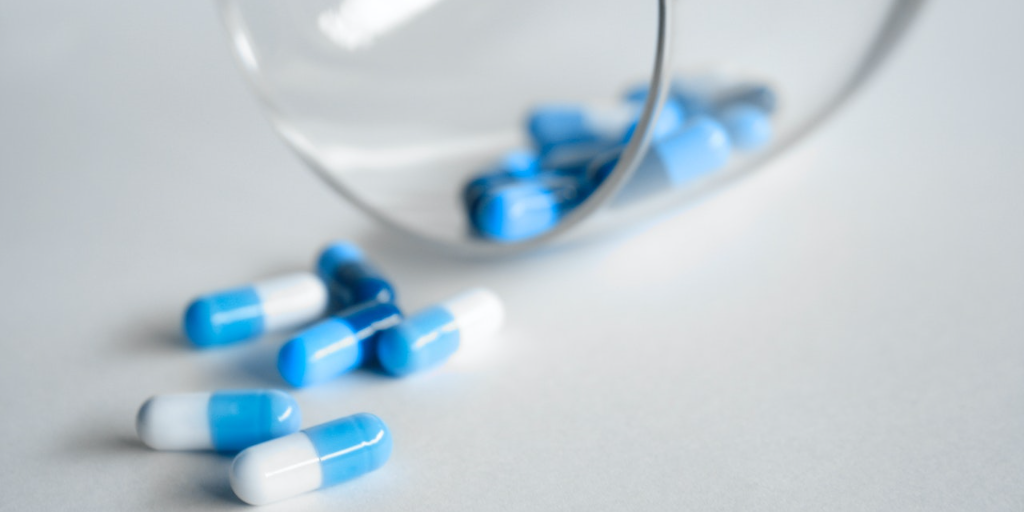A new tool in the fight against COVID-19 comes in the form of a pill
Lesson summary
Hi there everyone, I’m Jeff and this is Plain English, where we help you upgrade your English with current events and trending topics. This is lesson 418 of Plain English and JR has uploaded the full and complete lesson to PlainEnglish.com/418.
Coming up today…it’s not a magic pill, but it sure sounds helpful. Two companies have developed antiviral treatments for COVID-19. These are for people who develop COVID-19; the treatments are effective at reducing hospitalizations and deaths. They are the latest tool for fighting the COVID pandemic.
The English expression today is “a step forward” and we have a quote of the week as well. Let’s dive in.
Development of a COVID pill
Two global pharmaceutical companies have developed antiviral treatments for COVID-19. The treatments are pills that COVID patients can take to reduce the risk of hospitalization or death.
These two drugs are not the first antiviral treatments to hit the market. A drug called remdesivir was introduced in 2020 to treat the symptoms of COVID-19. But this existing treatment is administered intravenously, meaning that it’s delivered in a hospital and is injected directly into your bloodstream via a drip-feed. This treatment has been given only to patients who are already hospitalized and each course takes between 30 minutes and two hours to administer.
But it’s not a great fit for everyone. The European Union only uses it on COVID-19 patients that have already developed pneumonia. What’s more, it’s expensive and some researchers have questioned its effectiveness. It’s only available in 50 countries and its reach is limited only to those patients who are already in a hospital.
The new drugs developed by Merck and Pfizer are a major step forward because they can be taken orally, at home. In clinical trials, Merck’s drug reduced the risk of hospitalization and death by 50 percent. Pfizer’s trials were conducted on adults at risk of severe disease; its drug was 89 percent effective at preventing hospitalization and death among that high-risk group.
But there’s one big catch: both these treatments have to be taken early enough. Both pills are designed to be taken by people who have COVID-19 but who are not sick enough to be in the hospital. Sounds easy, right? Patients should just start taking the COVID pill early in the course of the disease.
Unfortunately, it’s not as easy as it sounds. The nature of COVID-19 makes the timing difficult. That’s because patients go through two phases of COVID. In the first phase, the virus replicates rapidly in your system. During this first phase, you may or may not experience any symptoms. In the second phase, the virus has already strengthened in your system, your body is starting to fight back, and you begin to feel the symptoms. But remember that antivirals help slow the replication of the virus in your system. So by the time you reach this second phase, it’s too late to take the antivirals.
You can see, then, why this might be a problem. Different people experience the first phase of COVID-19 differently. Some people do get mild symptoms early; others don’t feel anything at all until they’re in the second phase. And that’s just it: if a patient only discovers he or she has COVID after entering the second phase, then it’s too late to take the new treatments.
The good news is that there’s already something that can help you fight COVID-19 before you even get it: that would be vaccines. The vaccines are a preventative measure that prepare your immune system for dealing with COVID-19 before you even contract the virus.
Doctors analyzing the new treatments are optimistic that the new pills from Pfizer and Merck will be an effective tool in the battle against the pandemic. But some are worried that people will become complacent about getting vaccines or boosters. Some people may mistakenly think they can just take a pill after getting sick instead of getting vaccinated. That could be a dangerous misconception.
Taking the pills isn’t exactly a walk in the park, either. Both treatments involve taking pills twice a day for five days. (And I’m guessing they’re not small!) The Merck treatment requires you to take four pills twice a day for five days—a total of 40 pills in less than a week. The Pfizer one is just a little better, three pills each, twice a day. No significant side effects were reported in the trials. Both treatments are expected to be priced at about $700 per course in rich countries, about a third of the cost of existing antivirals.
Pricing has not been released for lower-income countries; however, Pfizer has pledged to make its treatments accessible to any country. Merck is going a step further . It has licensed its drug to a United Nations-backed organization called the Medicines Patent Pool. Under this agreement, Merck will allow local drug manufacturers in 105 low- and middle-income countries to use its formula to produce and sell the drug under their own brands. This agreement means that more courses of the drug can reach more people, at lower cost, than if Merck had kept its formula to itself.
Another tool in the toolbox
This is good news. It’s all about having as many tools in the toolbox as possible. Vaccines, frequent testing, and now antiviral treatments can all work together to end the pandemic. And a former commissioner of the Food and Drug Administration here said that he thinks we’re about to end the COVID-19 pandemic with the combination of children’s vaccines and COVID pills.
I was surprised to see him go that far. He didn’t mean that COVID would go away, just that it wouldn’t be a pandemic anymore, if we had all these extra tools. I don’t think I’m ready to say it’s over, but this is definitely great news regardless.
Great stories make learning English fun

